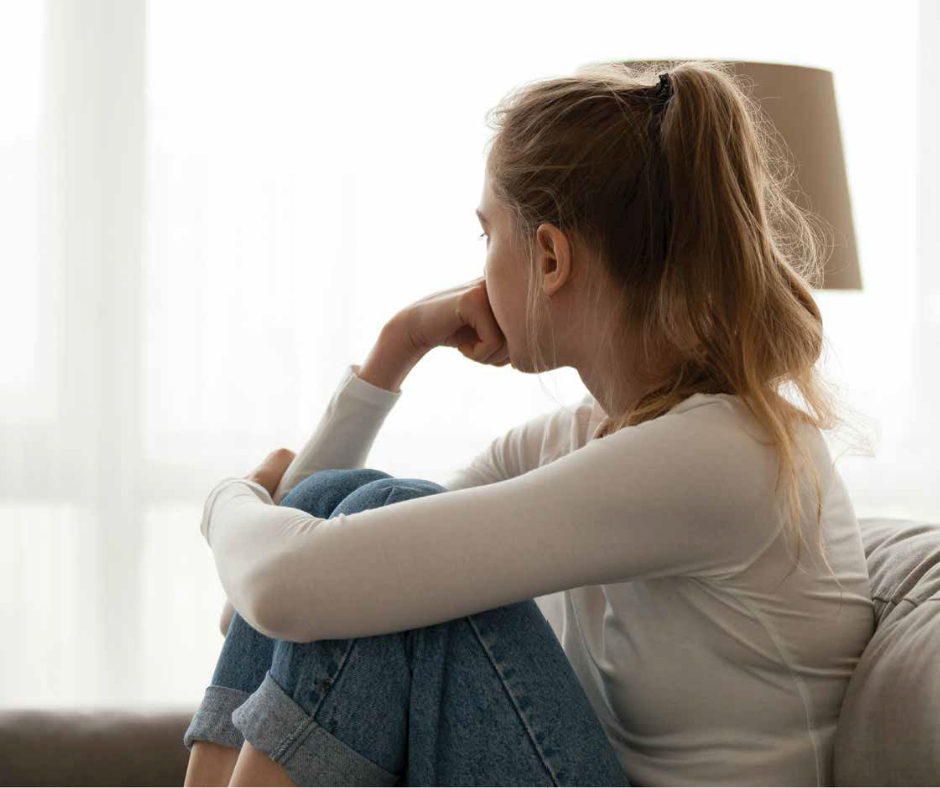Looking for a place to grieve.
Men are still finding their voice, and their grief, when it comes to abortion.
While the legal issues can seem black and white to advocates on either side of the political debate, the individual stories reveal the real lives being impacted.
Dr. Laura Lewis is the Executive Director of the Canadian Association of Pregnancy Support Services. She says men have historically been sidelined from pregnancy. Since the sexual revolution when sex, pregnancy, and fatherhood were separated.
In many ways, men have been told they don’t have any place in an unplanned pregnancy, she says, but the emotional impact continues to be very real.
Lewis shares the story of a young man who returned after being gone for the weekend to find his girlfriend had been pressured to have an abortion and received the unwanted procedure in his absence.
“It was very traumatic for him… it’s been devastating. Its been a long journey in coming to terms with it.”
For men who had an active role in choosing abortion, Lewis says they can feel like they don’t have permission to grieve.
“It’s not true. When a man gives himself permission, then that journey will begin in stages… it will look unique for each individual.”
Lewis worked for 22 years as a family physician. Her journey has have been one from a pro-choice to a pro-life stance, one she shared on the Promise Keepers Canada podcast for a down-to-earth discussion, as well as practical ways to show Christ’s love to all.
“It certainly wasn’t something I set out to do,” she says, but it’s a role she’s taken on, advocating for reformation on how the medical profession handles an unplanned pregnancy.
“One of the most effective ways to do this is through the beautiful, compassionate work of local pregnancy care centres.”
However, this wasn’t always Lewis’ perspective. Even during her education, she compartmentalized the knowledge of embryology and the unique DNA blueprint established at conception.
“I didn’t really think about what abortion was, I just really focused on helping women “fix” unplanned pregnancy through whatever solution they wanted, which is really what we see in our culture today.”
It’s a far cry from her perspective now, she says, after seeing the impact of abortion on women, men, and families and the importance of having practical, compassionate alternatives available.
It was on a medical mission trip to Guatemala that Lewis says she “saw God in action” and her heart began to soften. It set her on a path towards seeing the value in all life.
The next revelation came when she observed a young woman with Down Syndrome in her community. “I just saw how people made room for her, how much joy she brought into every situation and how her parents loved her.”
It brought up the question of “who are we to say who should die in our prenatal testing?”
Soon after Lewis helped establish a pregnancy centre, and she began hearing the stories of women recovering emotionally from abortions.
“I had never heard them before. It was hard to hear them… it deeply affected my view.”
Abortion has come squarely into public view recently as a number of U.S states have addressed the issue head-on.
In January 2019, the state of New York removed a clause with the Reproductive Health Act that considered abortion a criminal activity after 24 weeks gestation, unless the woman’s life was in danger.
It also removed a section that forced medical staff to protect life and provide assistance if the aborted baby was born alive.
Canada is unique in being the only Western nation without any abortion legislation. It’s completely legal to abort a baby until they exit the birth canal. The last law was struck down in 1988 when Henry Morgentaler took the issue to the Supreme Court.
“We still have a legal void in our nation, and many Canadians don’t realize that.”
Within that void, many women and young couples find themselves in extremely difficult situations.
Approximately half of all pregnancies are unplanned, Lewis notes, many from younger women. She recalls one story of a 14-year-old who became pregnant and was pressured to have an abortion by her boyfriend’s mother.
Four years later, Lewis says the teen shared she’s thought about her child every day since the termination of her pregnancy.
While many women deeply regret the decision to abort, Lewis says many feel they don’t have a choice, overcome with fear their boyfriend will leave them, questions of how they will finish school and financially support the child.
“An unplanned pregnancy can cause this flood of fear and uncertainty… and without others that can come alongside and bring hope and encouragement and practical support, women can feel abortion is the best choice, or the only choice, available to them.”
The first thing she tells the father is to just listen to the mother. “I think sometimes men feel they are supposed to say, “It’s your decision and I’ll support you in whatever you want to do,” and yet those words can actually sound like the man is not interested and the woman can feel abandoned.”
It’s key to identify where the pressure is coming from, Lewis says, whether it’s from people in their lives or circumstances.
Next, it’s important to identify all your options including adoption, parenting, and abortion.
“All of them have a life-impacting consequence, there’s no reverse button, and so you really have to work through “what does this look like” for each option. And then make sure to identify your own values.”
It’s a decision that needs to be made with your head and your heart as a couple, Lewis says.
When abortion has been chosen, Lewis says it takes both parents on a journey from becoming an expectant parent to a father and mother who have lost a child.
The disconnect between Western culture’s flippant view of abortion and the devastating emotional aftermath can lead to added shame, she says. “Our culture says it shouldn’t be a problem to have an abortion… so it’s really hard to even know where to let grief land.”
It can lead to secret shame, and “it’s hard to heal from something you never speak about,” she adds.
Instead, she encourages people to acknowledge the grief and find someone they feel safe in sharing with.
“There is a journey and there are wonderful resources out there to help men find the fullness of the healing and forgiveness in Christ.”
To learn more, visit: capss.com/resources or listen to our podcast interview with Dr. Lewis.
About


